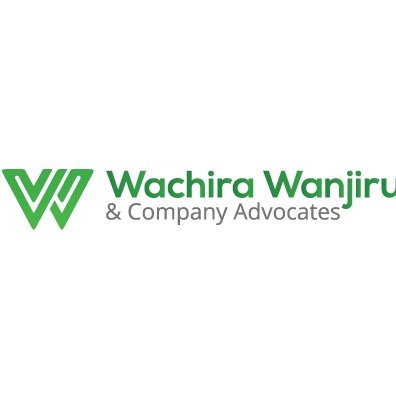Best Project Finance Lawyers in Nakuru
Share your needs with us, get contacted by law firms.
Free. Takes 2 min.
List of the best lawyers in Nakuru, Kenya
About Project Finance Law in Nakuru, Kenya
Project finance is a specialized area of law and finance focused on the funding of large-scale infrastructure and industrial projects, such as roads, energy plants, schools, hospitals, and water supply systems. In Nakuru, Kenya, as in other regions, project finance typically involves complex arrangements between sponsors, lenders, contractors, and government bodies. The projects are generally financed on a non-recourse or limited recourse basis, meaning that lenders rely on the project's future cash flows and assets as the primary source of repayment. Successful project finance in Nakuru requires strict compliance with both national and local laws, as well as meticulous risk allocation and contract structuring.
Why You May Need a Lawyer
Engaging a lawyer in matters of project finance in Nakuru is crucial for several reasons. Common situations where legal help is needed include:
- Drafting and negotiating project contracts or agreements
- Securing government permits, licenses, and regulatory approvals
- Conducting due diligence on land ownership or legal issues
- Structuring finance documents in line with Kenyan law
- Managing joint venture or public-private partnership (PPP) arrangements
- Resolving disputes between stakeholders
- Advising on tax implications and compliance
- Ensuring compliance with environmental and social impact regulations
- Facilitating cross-border transactions or foreign investment involvement
- Handling loan defaults or restructuring negotiations
Whether you are an investor, contractor, financier, or public agency, involving a legal professional ensures your rights and interests are protected throughout the lifecycle of a project.
Local Laws Overview
Several key laws and regulatory frameworks impact project finance in Nakuru, Kenya. Some of the most relevant legal aspects include:
- Land Laws: The Land Act and Land Registration Act govern land ownership and use, which is critical for securing sites for infrastructure projects.
- Public-Private Partnerships Act: This law enables private sector participation in public projects, outlining the approval and procurement process.
- Companies Act: Dictates how project companies or Special Purpose Vehicles (SPVs) are established and managed.
- Environmental Management and Coordination Act: Requires projects to obtain environmental impact assessments and adhere to environmental standards.
- Banking and Finance Laws: Regulate how loans can be arranged, collateral is provided, and security interests are registered.
- Tax Laws: Affect the structure and viability of a finance project through provisions for VAT, income tax, and exemptions.
- Procurement Laws: Guide the fair awarding of contracts, especially in publically sponsored projects.
Compliance with both national statutes and the specific requirements of Nakuru County is essential to avoid project delays, legal disputes, and loss of investment.
Frequently Asked Questions
What is project finance and how does it differ from traditional financing?
Project finance is a method of funding where lenders rely on the project's cash flows and assets for repayment, rather than the general creditworthiness of the project sponsors. This is different from traditional financing, which is usually based on the borrower's balance sheet.
Which types of projects in Nakuru commonly use project finance structures?
Project finance structures are often used for infrastructure projects such as roads, bridges, energy plants, water supply systems, hospitals, schools, and other large public sector initiatives.
Do I need government approval for a private project?
Yes, most large-scale projects require multiple government permits, including land use approvals, environmental impact assessments, and operational licenses. In cases involving public infrastructure, additional approvals under the Public-Private Partnerships Act may be necessary.
What is a Special Purpose Vehicle (SPV) and why is it important?
An SPV is a separate legal entity created to isolate project risk. It is important because it shields sponsors from project-specific liabilities and concentrates all project contracts, assets, and debt within one entity.
What security can lenders take in project finance transactions?
Lenders typically take security over the project assets, such as land leases, equipment, project accounts, and shares in the SPV. They may also require direct agreements with major contractors and offtakers.
How do environmental regulations impact project finance?
Projects must comply with Kenyan environmental laws, which require environmental impact assessments and sustainable operational practices. Non-compliance can result in project suspension or legal action.
Is foreign investment allowed in project finance deals in Nakuru?
Yes, foreign investment in project finance is permitted, subject to compliance with Kenyan investment, exchange control, and regulatory laws.
What are common legal pitfalls in project finance transactions?
Common pitfalls include lack of proper due diligence, unclear land titles, non-compliance with regulatory requirements, poorly drafted contracts, and unbalanced risk allocation.
What happens if the project cannot repay its loans?
If a project fails to generate sufficient cash flow to repay lenders, the lenders may enforce their security. In limited or non-recourse structures, the sponsor's liability is limited to their investment in the project.
How can a lawyer assist if there is a dispute during the project?
A lawyer can help by analyzing contract provisions, representing you in negotiations or litigation, facilitating mediation or arbitration, and ensuring your interests are protected according to the law.
Additional Resources
Several organizations and government agencies can provide information or assistance related to project finance in Nakuru, Kenya, including:
- National Treasury and Planning (PPP Unit)
- Kenya Investment Authority (KenInvest)
- Nakuru County Government, Department of Trade and Industry
- Energy and Petroleum Regulatory Authority (EPRA)
- National Environment Management Authority (NEMA)
- Law Society of Kenya (LSK) - Nakuru Branch
- The Institute of Certified Public Accountants of Kenya (ICPAK) for financial compliance
Next Steps
If you are considering involvement in a project finance transaction in Nakuru, Kenya, or are already working on one and need legal support, follow these steps:
- Assess the scope and requirements of your project to identify potential legal and regulatory needs.
- Consult with a lawyer experienced in project finance and relevant sectors, such as infrastructure, energy, or real estate.
- Gather and review all relevant documents, including contracts, permits, and land titles.
- Work with your lawyer to conduct due diligence, structure financing arrangements, and prepare all necessary agreements and filings.
- Maintain ongoing legal support to ensure compliance, risk management, and efficient dispute resolution throughout the project lifecycle.
Proactively securing experienced legal advice can safeguard your investment, streamline project development, and help you avoid costly delays or disputes in Nakuru's dynamic and growing project finance landscape.
Lawzana helps you find the best lawyers and law firms in Nakuru through a curated and pre-screened list of qualified legal professionals. Our platform offers rankings and detailed profiles of attorneys and law firms, allowing you to compare based on practice areas, including Project Finance, experience, and client feedback.
Each profile includes a description of the firm's areas of practice, client reviews, team members and partners, year of establishment, spoken languages, office locations, contact information, social media presence, and any published articles or resources. Most firms on our platform speak English and are experienced in both local and international legal matters.
Get a quote from top-rated law firms in Nakuru, Kenya — quickly, securely, and without unnecessary hassle.
Disclaimer:
The information provided on this page is for general informational purposes only and does not constitute legal advice. While we strive to ensure the accuracy and relevance of the content, legal information may change over time, and interpretations of the law can vary. You should always consult with a qualified legal professional for advice specific to your situation.
We disclaim all liability for actions taken or not taken based on the content of this page. If you believe any information is incorrect or outdated, please contact us, and we will review and update it where appropriate.
















